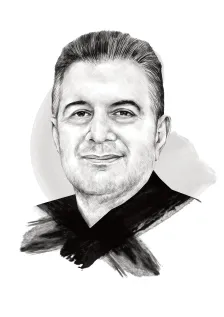Palestinians, already the victims of genocide and in need of a ceasefire to survive, have suffered a new racist blow: the decision of several countries to suspend funding for the United Nations Relief and Works Agency for Palestine Refugees (UNRWA).
Most of these countries are among the agency's top 20 donors. Their decision came because Israel accused UNRWA employees of being involved in the 7 October attacks and the organisation of harbouring them after Hamas’s Operation Al-Aqsa Flood.
The withdrawal of funding amounts to more collective punishment for the Palestinians, alongside Israel's killing and starvation of civilians in Gaza. It also comes as part of the broader impact of the war, which has added to the economic pressure on countries in the region already in crisis and led to Iran’s disruption of global shipping in the Red Sea.
But this punishment of UNRWA by donor countries threatens the human security of the nearly 6 million Palestinian refugees who depend on it — inside Palestine and beyond. And it is underway before the results of any investigation into Israel’s allegations, however preliminary.
The timing of the accusations stands out. It came immediately after the International Court of Justice issued its ruling on formal accusations of genocide against Israel filed by the Republic of South Africa.
Read more: UN court hears South Africa genocide case against Israel
The court held Israel responsible for exposing the lives of the Palestinian people to systematic killing and urged "immediate and effective measures to enable the provision of urgently needed basic services and humanitarian assistance."
Assassination attempt
It also called on Israel “to take action to prevent acts of genocide in the Gaza Strip.” And yet, the decision by key donor countries to pull funding from UNRWA amounts to an assassination attempt on an organisation that reminds the world of the Nakba, which led to the refugee crisis in the first place.




